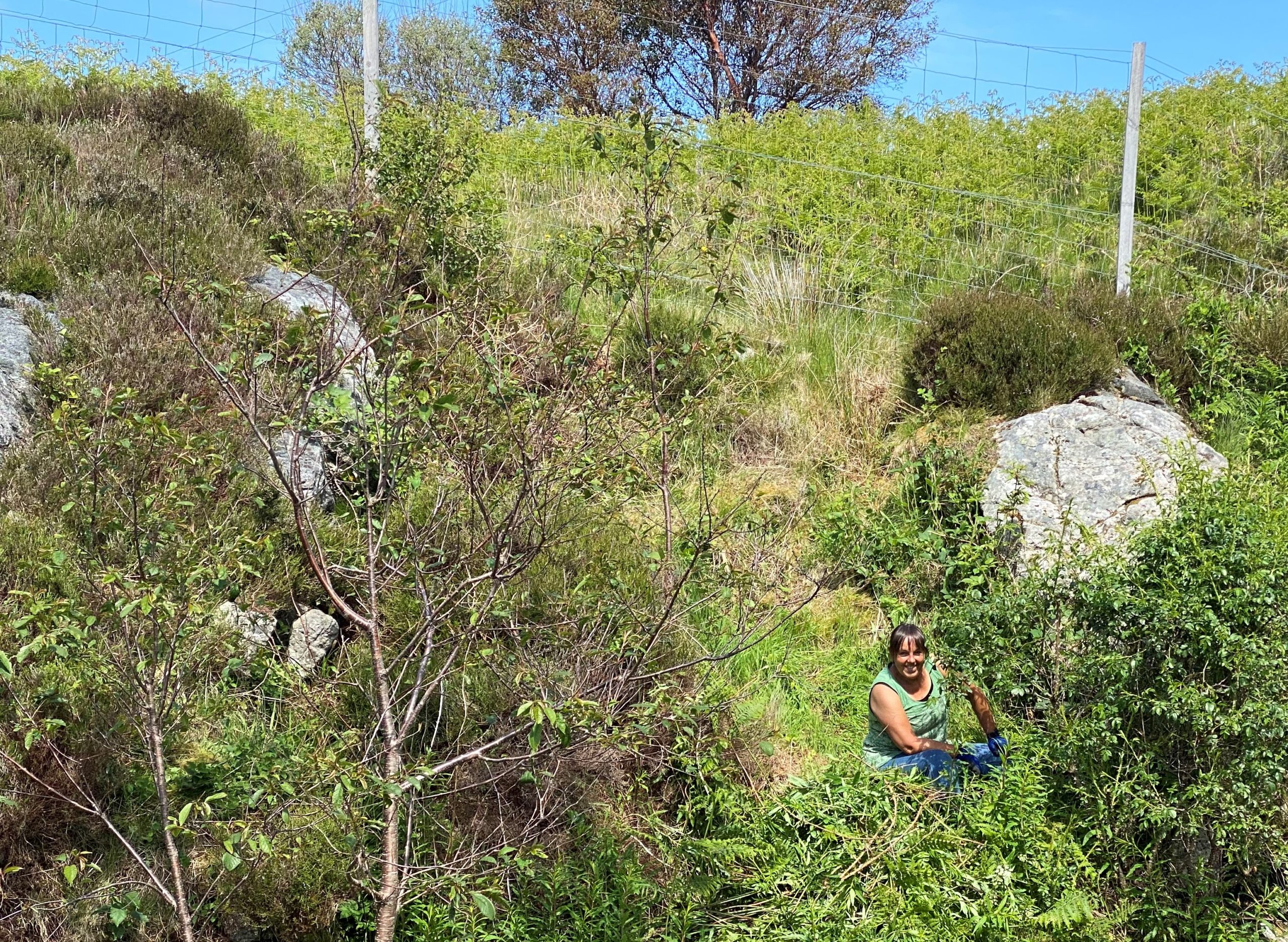My mother was a gardener. Not by profession but by choice. She had studied botany and knew all the Latin names but I think, above everything, she just liked an excuse to get her hands dirty.
Dressed in the oldest of clothes, small fork in hand she spent every spare hour on the kidney-shaped kneeling pad she had fashioned from an old piece of foam, covered (badly – she hated sewing) in a torn-up shirt. I thought she was mad. Don’t get me wrong, I enjoyed the flowers she expertly nurtured and loved to be in the garden on a sunny day. And I suppose I appreciated the concept of keeping the weeds at bay. I just couldn’t understand the love she seemed to have for it, and how it never mattered to her how her cracked fingers were permanently ingrained with dirt.
Fast forward 40 years. I glance down at my own hands. Every woman knows their hands turn into their mother’s at a certain age. We realise it suddenly, and in shock. I too saw this, like most, while driving. What I never expected was that my fingertips would be scratched, torn and ingrained with mud, or that I’d be perfectly happy about it.
At one time, after moving to the Highlands, I found myself with a garden of my own. It was large and wild and I didn’t have much time to deal with it. My mother made the 450 mile journey every spring, and she would stay with me for a month with the intention of working on it. She tried very hard and made an enormous difference but I lacked the will, time or ability to improve upon what she’d achieved. Eventually her visits consisted mostly of planting up my hanging baskets and sitting on the bench drinking beer, tut-tutting about all the things I should have tended to in the intervening months. I do hope she was not too exasperated with me, when she passed away. If she can see me now, I’m sure she’ll be shaking her head in disbelief as well as delight.
Against all the odds, there came a time when burying my hands into damp, black earth and ripping out satisfying lengths of ground elder root while handsome blackbirds strutted on the frosty grass was what saved me. Freshly returned from overseas exploits I needed a job and I needed a distraction from the turmoil my life had become. Under the close supervision and expert guidance of my friend Anne, whom I likened repeatedly (and respectfully) to my mother, I somehow became the gardener she had wanted me to be. I came to understand the peace and calmness of being amongst soil and foliage, the company of a cheeky robin, the delight of watching life unfurl. It was earthy, it was basic; almost primeival and extremely healing.
Months later I found real gardening work of my own and I learned to love the leaves of autumn and crisp, rosy-cheeked winters although I always drew the line at horizontal rain.
My lifelong involvement with visual art, however, saw me gradually moving away from outside work and back into my usual field, although occasionally I missed the abandon, the scarecrow hair, snotty nose, tattered clothes, breath hanging in the freezing air, nobody watching.
Suddenly and unexpectedly, disaster has struck and most people in my area have found themselves without work, dependent as we are on the tourist trade. It took me a little while to realise that my mother’s passion has the potential to save me again. The garden I have worked before is still welcoming my attention. The thrushes beg for snails. The yellow roses, somewhat neglected of late, waft their sweet perfume, the lupins their pepper as I grovel about happily in the warm sunshine, my mother’s hands rough, my fingernails completely black, my smile wide.
